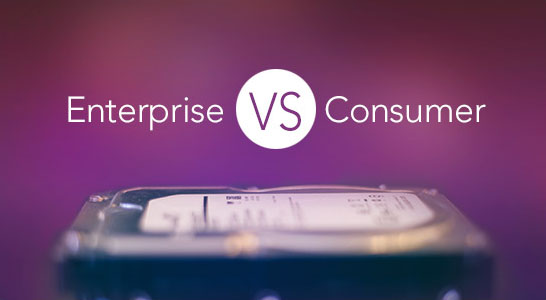- Qualcomm Launches Snapdragon 4 Gen 2 Mobile Platform
- AMD Launches Ryzen PRO 7000 Series Mobile & Desktop Platform
- Intel Launches Sleek Single-Slot Arc Pro A60 Workstation Graphics Card
- NVIDIA Announces Latest Ada Lovelace Additions: GeForce RTX 4060 Ti & RTX 4060
- Maxon Redshift With AMD Radeon GPU Rendering Support Now Available
Do Enterprise Hard Drives Last Longer Than Consumer Ones? Backblaze Doesn’t Think So
Because enterprise environments tend to stress hard drives a lot harder than consumer ones, vendors have separated drive models into two groups. As it is, hard drive vendors often market enterprise drives as being built better than consumer drives, and designed to last longer. According to Backblaze, however, there might be no difference between the two at all.
Backblaze is a cloud storage provider, and one that existed before the recent burst of providers hit the scene. It’s not a company that tends to keep quiet on certain issues, or even its own goings-on. It goes as far as to explain in detail how it designs its servers, so as to give DIYers a baseline and to give its customers reason to believe that it’s the best at what it does.

It was with great interest, then, that I read through one of the company’s latest blog posts, passed on by a friend. The premise is simple: Are enterprise drives actually better than consumer ones?
I won’t get into the nitty-gritty, as the article covers it perfectly, but after months of monitoring a lot of hard drives (with varying lifespans), it was deemed that enterprise drives simply do not last longer than consumer ones. Of the 368 enterprise drives in use, the annual failure rate hit 17 (4.6%), whereas on the consumer front, 613 drives failed out of a total 14,719 (4.2%).
You might have noticed that those numbers put the enterprise drives as having a higher failure rate, but given the number of drives used paled in comparison to the consumer count, it’s hard to mark this as definitive. Plus, the number of drives alone – even ~15,000 – means that this is a small sample. It’d be great if other cloud storage vendors, or those companies that use a ton of storage, would chime in and help sort this out.
The reason this matters at all is that enterprise storage costs a lot more than consumer storage, so for those who simply need to store large amounts of data while keeping it redundant, it seems consumer storage is the way to go – at least, according to this one report.




